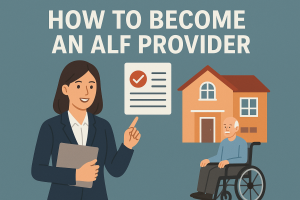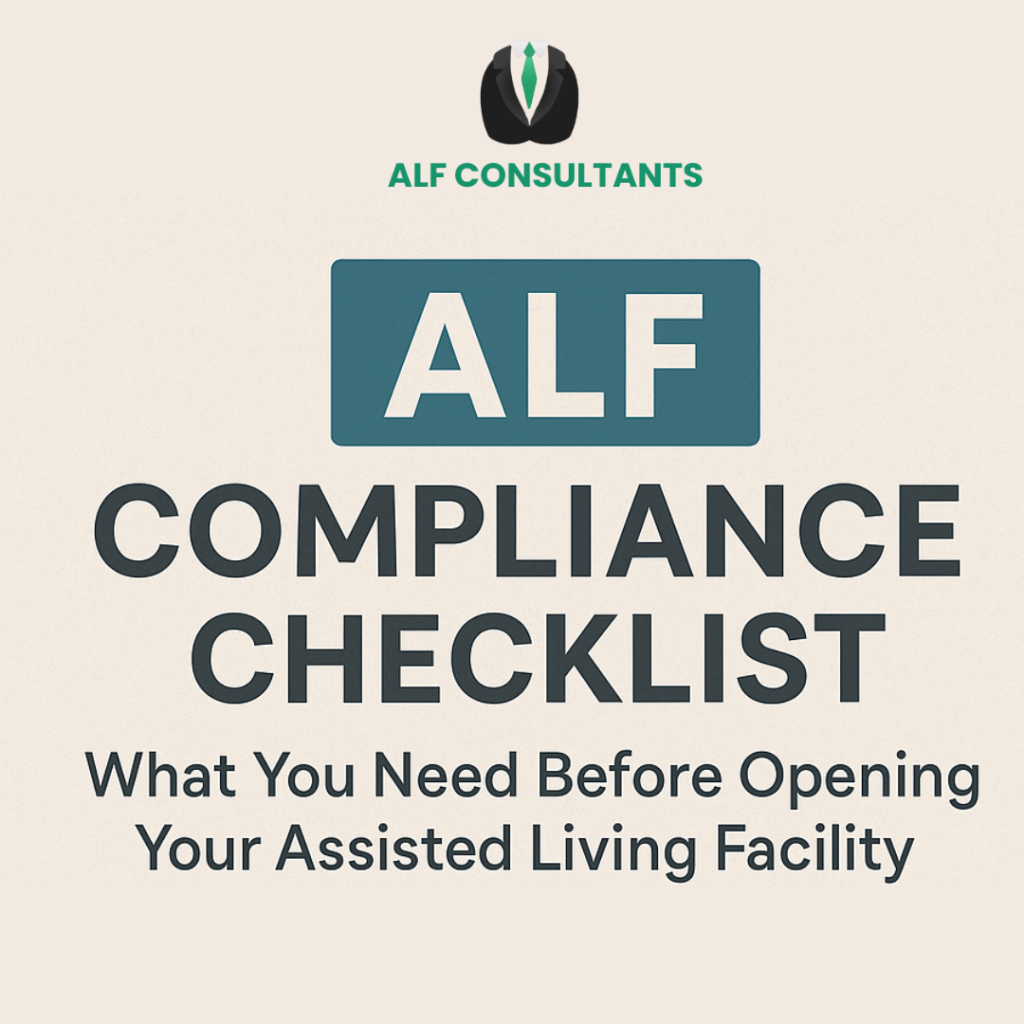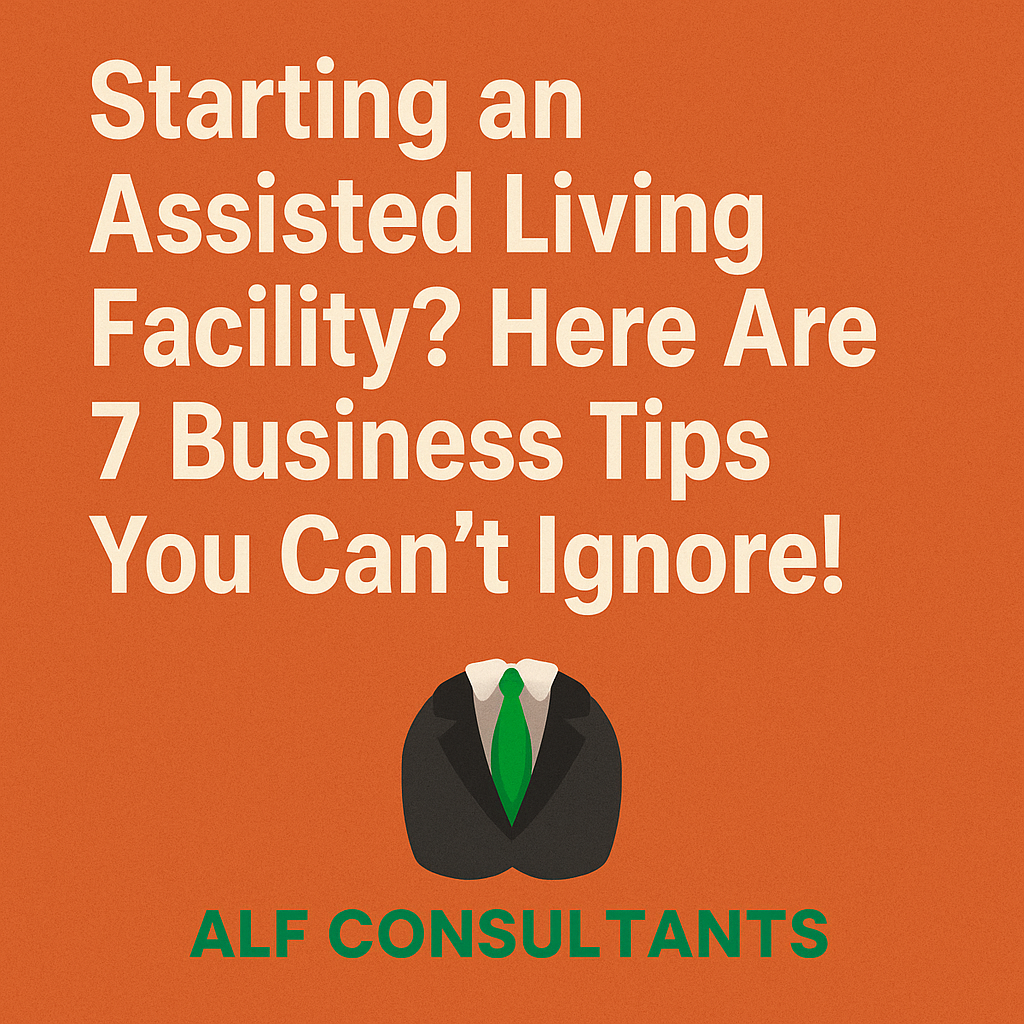
🏡 How to Become an ALF Provider
Starting an Assisted Living Facility (ALF) can be one of the most rewarding business ventures in the healthcare industry. As an ALF provider, you’re not only building a business — you’re creating a safe, comfortable home for residents who need daily support while maintaining their independence.
If you’ve ever wondered what it takes to become an ALF provider in the United States, here’s a step-by-step guide to help you get started.
1️⃣ Understand What an ALF Provider Does
An Assisted Living Facility (ALF) offers housing, personal care services, and health support to seniors or adults who need help with daily living activities — such as bathing, dressing, meals, and medication reminders.
As an ALF provider, your responsibilities include:
-
Managing day-to-day operations of the facility.
-
Ensuring compliance with state and federal regulations.
-
Overseeing staff training and resident care.
-
Maintaining financial and administrative records.
2️⃣ Learn Your State’s Licensing Requirements
In the U.S., assisted living facilities are regulated at the state level — meaning each state has its own licensing rules, training hours, and inspection procedures.
You’ll need to contact your state’s Department of Health or Agency for Health Care Administration (AHCA) to review:
-
Minimum requirements for the building and safety standards.
-
Training and certification required for the administrator.
-
Application forms, fees, and background screening.
For example:
-
Florida: You must complete the AHCA-approved ALF Core Training and pass the state exam to become a licensed administrator.
-
Texas: Providers apply through the Health and Human Services Commission (HHSC) and must meet specific facility and staffing standards.
3️⃣ Complete Required Training and Certifications
Most states require ALF administrators or providers to complete specific training programs before applying for a license.
Typical topics include:
-
Resident care and safety
-
Medication management
-
Alzheimer’s and dementia care
-
Infection control
-
Emergency preparedness
👉 Example: In Florida, providers must complete 26 hours of Core Training and pass the state exam.
4️⃣ Choose a Suitable Location and Property
Your facility’s location plays a major role in licensing and success. The building must meet local zoning, fire safety, and accessibility codes.
Consider:
-
Proximity to hospitals, clinics, and pharmacies
-
Adequate parking and outdoor space
-
Room layouts that promote privacy and comfort
If you’re converting a residential property into an ALF, be sure it complies with state-approved capacity limits (for example, small facilities may house up to 5–6 residents, while large ones can serve 20+).
5️⃣ Prepare Your Business and Operations Plan
A strong business plan not only helps you stay organized — it’s essential when applying for financing or licenses.
Your plan should include:
-
Mission and vision of your ALF
-
Target population (e.g., seniors, memory care residents)
-
Staffing and training plan
-
Financial projections and budget
-
Policies for resident care, admission, and discharge
6️⃣ Submit Your License Application
Once you’ve completed training and prepared your facility, submit your state application for licensure. This step typically includes:
-
Proof of ownership or lease agreement
-
Background screening and fingerprints
-
Floor plans and fire inspection reports
-
Staff qualifications and health screenings
-
Application fees
After submission, your state agency will review your paperwork and schedule an on-site inspection before granting final approval.
7️⃣ Hire and Train Your Staff
Quality care begins with a skilled team. Most states require ALFs to employ trained caregivers, medication assistants, and administrators.
Ensure that every staff member completes:
-
Background screening
-
Initial and ongoing training
-
CPR/first aid certification
-
Alzheimer’s/dementia care training (if applicable)
8️⃣ Market Your ALF and Build Trust in the Community
Once licensed, promote your facility to attract residents and families.
Effective marketing strategies include:
-
Creating a professional website with photos and testimonials
-
Listing your ALF on senior care directories
-
Partnering with local hospitals, rehab centers, and referral agencies
-
Hosting community tours or open houses
Becoming an ALF provider in the U.S. is a structured process — but with the right planning, training, and dedication, it can lead to a deeply fulfilling career.
You’re not just opening a business; you’re creating a home that supports dignity, independence, and compassion for residents who need it most. 🌿


